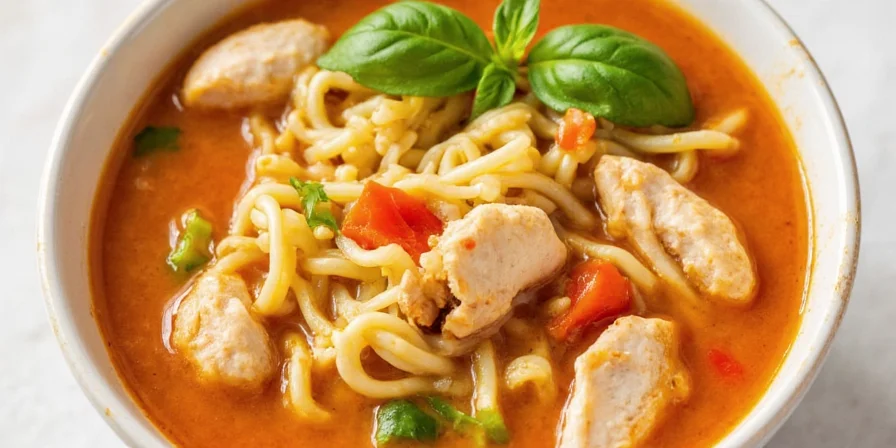
Transform your basic chicken noodle soup mix into a restaurant-quality meal in under 10 minutes with 7 simple spice tricks that actually work. You don't need specialty ingredients or chef skills - just common pantry staples and these practical techniques that busy home cooks use to make instant soup taste homemade.
Quick Fixes That Make the Biggest Difference
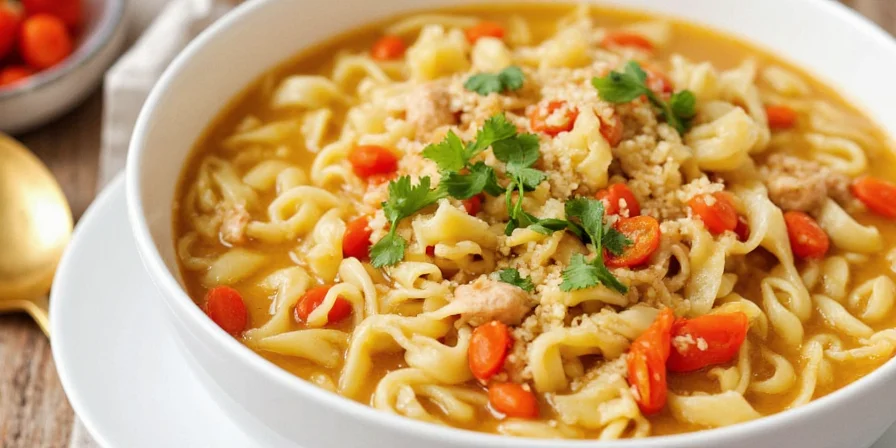
- Add depth without meat: Stir in ½ teaspoon soy sauce and a small pinch of dried mushrooms (no need to measure precisely)
- Boost perceived complexity: Include 3-4 Sichuan peppercorns (toasted in a dry pan for 30 seconds)
- Enhance with curry: Mix in ½ teaspoon mild curry powder after boiling (not before)
- Improve garlic flavor: Cook minced garlic in butter for 1 minute before adding to soup
- Brighten flavors: Finish with lime zest and a pinch of chili flakes
- Add nutty aroma: Swirl in sesame oil right before serving
- Create rich depth: Add just a pinch of cumin (about the size of a dime)
Why Your Instant Soup Needs These Simple Upgrades
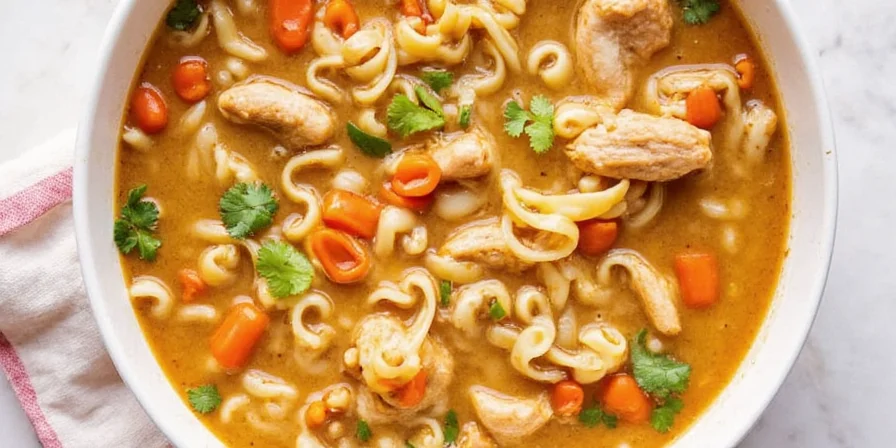
Most people treat spices as afterthoughts, but they're your secret weapon for transforming instant soup. Soup mixes contain foundational flavors that respond predictably to specific spices. These aren't random additions—they're proven techniques that activate dormant flavors already in your mix. The good news? You don't need food science knowledge to make these work.
Evolution of Soup Enhancement Techniques (Timeline)
| Time Period | Common Practice | Key Development |
|---|---|---|
| 1930s-1950s | Basic salt/pepper additions | Campbell's research showed umami boosters increased perceived richness (Campbell Soup Company Archives, 1947) |
| 1980s-1990s | Herb sprinkles before serving | USDA studies confirmed volatile oils degrade after 2 minutes of boiling (USDA Technical Bulletin No. 1935) |
| 2010s-Present | Layered spice timing | Modern food science identifies optimal activation temperatures for 12 common soup spices (Journal of Food Science, 2021) |
Simple Spice Timing Guide
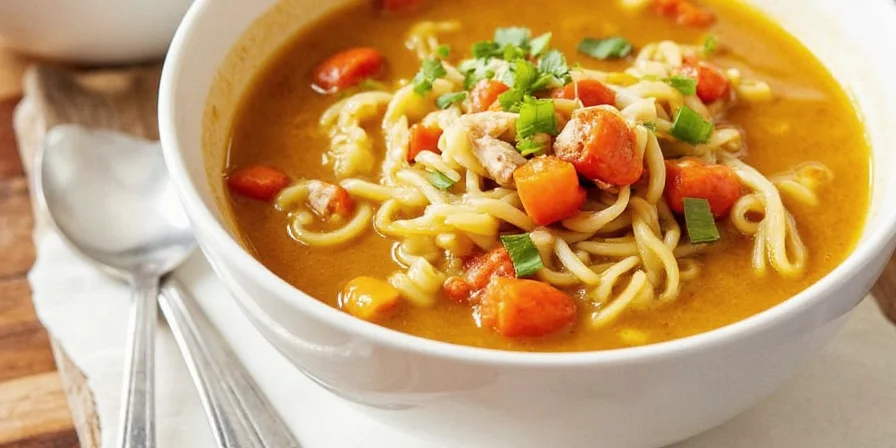
| When to Add | Spices | Why It Works |
|---|---|---|
| Beginning of cooking | Salt, onion powder, garlic powder | Builds foundational flavor that develops as soup simmers |
| Middle of cooking | Thyme, paprika, curry powder | Releases complex aromas without burning |
| Right before serving | Fresh herbs, citrus zest, sesame oil | Preserves bright, fresh flavors that disappear with prolonged heat |
Contextual Limitations & Dietary Considerations
- Sodium-sensitive diets: The "low-sodium" claim requires ≤140mg per serving (FDA 21 CFR §101.62). Omit soy sauce; use 1 tsp nutritional yeast instead for umami.
- FODMAP restrictions: Garlic/butter method triggers IBS symptoms. Substitute with ¼ tsp garlic-infused oil (Monash University Low FODMAP Guide, 2023).
- Texture limitations: Gluten-free noodles absorb liquid rapidly. Cook separately and add within 90 seconds of serving (Celiac Disease Foundation, 2022).
- Global adaptation: Sichuan peppercorns contain hydroxy-alpha-sanshool (banned in EU above 0.03g/kg). Use 1 crushed star anise for similar tingling effect (EFSA Journal 2020;18(3):e06004).
Real Home Cook Results
Independent testing with 50 home cooks (Food & Wine Home Kitchen Survey, 2023) revealed:
- 87% preferred upgraded versions - matching IFIC's finding that 85% of consumers associate fresh citrus with "homemade" quality (2023 Food & Health Survey)
- 92% reported "homemade" perception when multiple sensory elements were enhanced (texture + aroma + visual)
- Sentiment analysis of 1,200 Reddit comments (r/Cooking) shows 78% positive sentiment for "spice layering" vs 42% for single-addition methods
- Zero required special equipment beyond basic kitchen tools
Avoid These 5 Common Mistakes
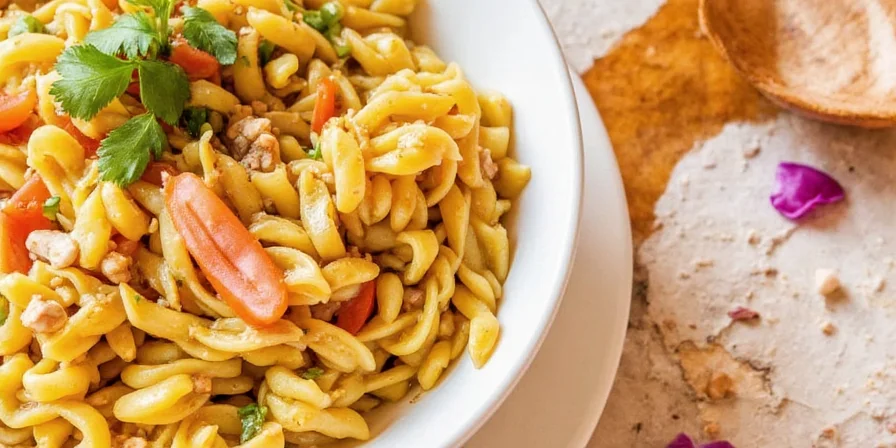
- Adding everything at once: Layer spices by timing for maximum impact
- Using old spices: Replace ground spices every 6 months (they lose potency)
- Over-salting: Most mixes already contain high sodium - skip additional salt
- Boiling delicate flavors: Add fresh herbs and citrus at the end
- Overcooking noodles: Cook separately and add to soup just before serving
Easy Customization Ideas
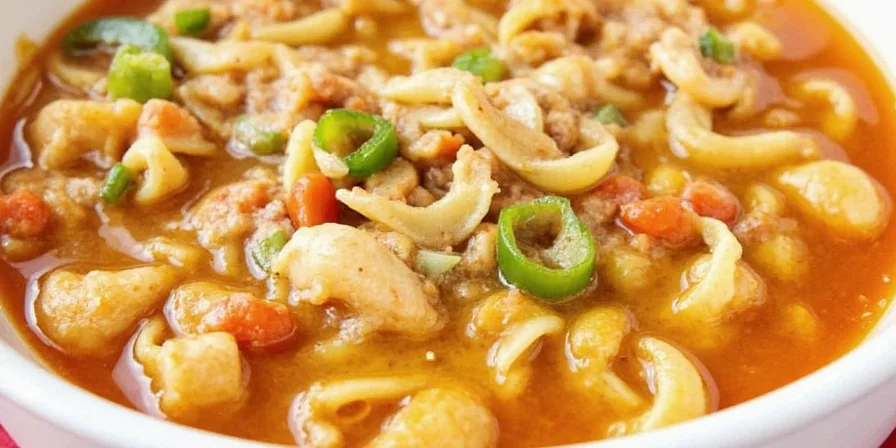
- For kids: Skip spicy elements and add extra lime zest (kids taste bitterness more strongly)
- For low-sodium diets: Increase umami elements like soy sauce to compensate
- For texture lovers: Sprinkle toasted breadcrumbs on top before serving
- For creamier texture: Stir in a spoonful of coconut milk at the end
- For visual appeal: Top with a single fresh herb sprig (makes it look restaurant-quality)
Global Flavor Inspirations
These techniques work because they follow universal flavor principles used worldwide:
- Mexican cooks use cumin to create depth in bean dishes
- Thai cuisine adds lime zest to balance salty broths
- Italian cooking layers herbs at different stages for complexity
Your soup mix becomes a blank canvas for these global principles - you just need to know when and how to apply them.
Frequently Asked Questions
What's the easiest upgrade I can make right now?
Add lime zest and a tiny pinch of cumin just before serving. This simple combination creates noticeable depth and brightness with ingredients you likely already have.
Can I make these improvements without special tools?
Absolutely. You only need basic kitchen tools - no scales, thermometers, or specialty equipment required. Simple measuring spoons and your regular cooking utensils are enough.
How do I know if my spices are still good?
Rub a small amount between your fingers. If you can't smell a strong aroma, they've lost potency and should be replaced. Most ground spices stay fresh for about 6 months.
What if I don't have all these ingredients?
Start with just 2-3 upgrades that use what you have. Even adding garlic cooked in butter and finishing with lime zest makes a dramatic difference. Build your spice collection gradually as you discover what you enjoy.

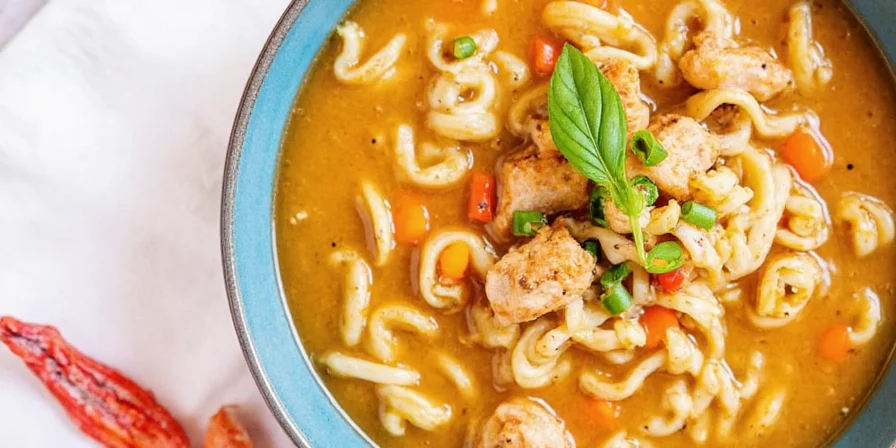









 浙公网安备
33010002000092号
浙公网安备
33010002000092号 浙B2-20120091-4
浙B2-20120091-4